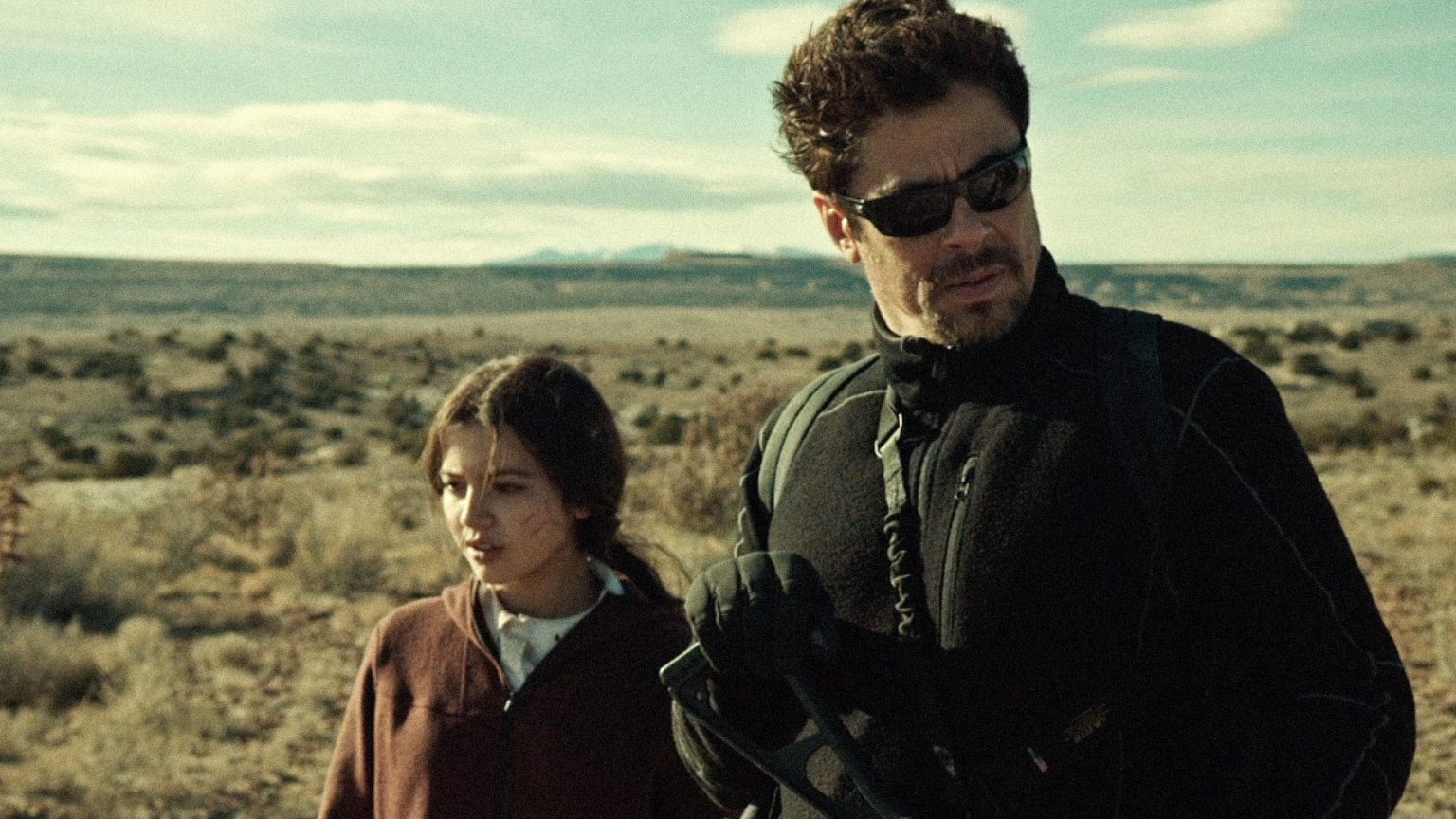Sicario: Day of the Soldado is not an easy film to review.
Nor is it an easy film to enjoy, recommend, or find necessary for today’s world. Even worse, it might just be dangerous.
Like the first film, Sicario: Day of the Soldado is a tense thriller, preoccupied with heavy ideas centered on the American-Mexican border war. While Oscar-nominated director Denis Villeneuve, Oscar-winning cinematographer Roger Deakins and lead actress Emily Blunt were all absent for this sequel, director Stefano Sollima and cinematographer Dariusz Wolski successfully imitate the first film’s impeccably crafted sense of dread. It also helps that actors Benicio del Toro and Josh Brolin reprise their roles, bringing a sense of machismo to the proceedings. Dark, graphic, and grim, the cynicism and technical precision embedded in the first film’s DNA are carried over here to a somewhat successful aesthetic degree. Del Toro is particularly adept at showing a wide range of emotions with no words needed, and his character, Alejandro, is a much more sympathetic character this time around.
On a purely cinematic level, the film paces punishingly onward, never allowing the audience any time to ponder the themes it introduces. Instead, it’s entirely predicated on the moment-to-moment shock or thrill of the brutal, relentlessly escalating violence, especially towards people of color: Mexican, Somalian, Yemeni. At least the first film allowed us to feel the full brutal whiplash of each burst of violence. Here, it’s only a means to an end.
Yet that is the exact downfall of Sicario: Day of the Soldado. The problem(s) of this, indeed, problematic film stem from screenwriter Taylor Sheridan’s lack of nuance regarding the many issues the film raises (drug and human trafficking; border security). In fact, the film is entirely one-sided and amoral. Amorality can work in some films if handled well, but here, when so much is at stake, the filmmakers shy away from straddling the line in a meaningful way.
This is a movie wherein every significant character is evil or, at the very least, not morally opposed to committing savage killings — whether their victims are American or Mexican. However, due to the film’s stance on Josh Brolin’s CIA enforcer Matt Graver and Del Toro’s lawyer-turned-Sicario Alejandro, the audience is inherently positioned to root for the US side of things — despite the US creating and carrying out a plan to start a cartel war by murdering a rival cartel’s lawyer, then kidnapping the daughter (Isabela Moner) of the Reyes cartel, framing both in the process. Of course, this plan all goes to hell, double-crosses ensue, and there’s a mishandled subplot about a young Mexican-American boy, Miguel (Elijah Rodriguez), acting as a “coyote” to get Mexican people illegally across the border — but eventually becoming the Soldado (soldier) of the film’s title. But let’s back up: Why does the US government sanction Graver and Alejandro to start a cartel war? Why, because of Islamic terrorists!
Yes, as if sincerely trying to represent the full spectrum of #MAGA anxieties, the film opens with not one, but two separate suicide bombings carried out by Islamic extremists. An Arabic prayer can even be heard during both. The US government believes Mexico and its cartels have been allowing these terrorists into the country. No longer contained to simply stopping the drug trade from entering the U.S., the film now frames its most urgent issues around those who enter this country illegally, whether from South or Central America (pick a country), Africa, or the Middle East.
Later on, we do find out the terrorists were from New Jersey — not Yemen, not Somalia, and not Mexico. This could have been the movie’s crucial turning point of actual moral course correction, making obvious the dirty hand the US plays in these geopolitical conflicts. Yet no such scene comes, and thus, audiences aren’t given any opportunities for questioning or insight.
Wherever you fall on the political spectrum, cynicism and nihilism have certainly risen to the forefront of the global, and especially American, cultural consciousness. For what it’s worth, Sicario: Day of the Soldado heavily plays into this sentiment. However, for a film that will be watched by millions domestically and abroad, for a film that acts as if it has enough gritty realism to be a representation of what is actually going on in the world, a film like Sicario 2 also demands a measured approach in how it handles its characters—especially characters of color—in a society already becoming more and more hostile to non-white Americans and all foreigners.
It’s one thing to do something meaningful with situations that are “ripped-straight-from-the-headlines”; it’s another to hijack those attention-grabbing headlines without any thought to the ramifications and consequences of doing so. After the success of the first film in doing the former, it’s especially sad that Sicario: Day of the Soldado is entirely the latter.




